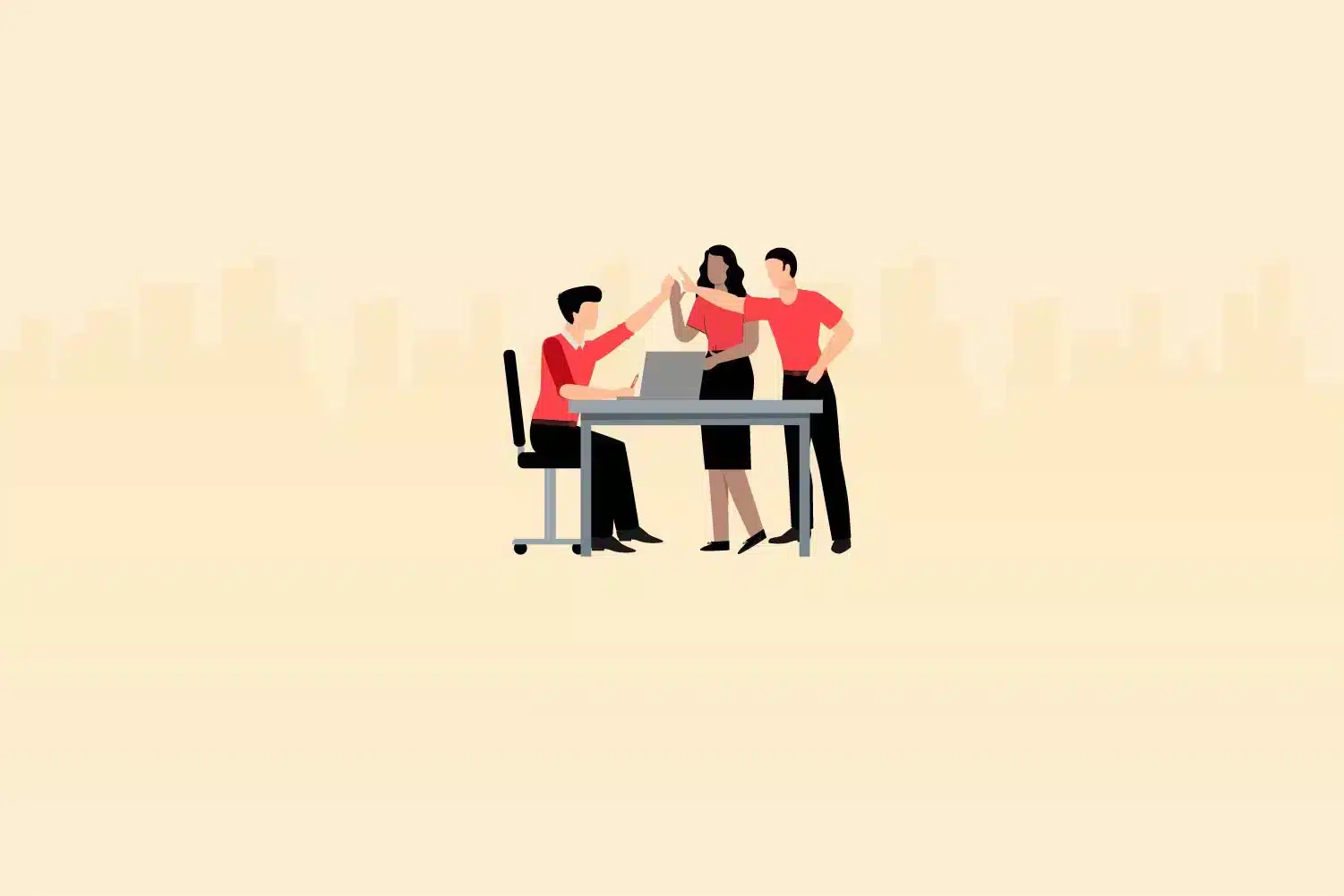The landscape of recruiting business development managers has been evolving in response to the changing dynamics of the business world. As organizations strive for growth and expansion, the demand for skilled professionals who can drive strategic partnerships, identify new market opportunities, and foster revenue growth has surged.
According to recent analytics, there has been a substantial increase in the number of companies seeking Business Development Managers, with a particular focus on industries such as technology, healthcare, and e-commerce. In this competitive environment, HR professionals and CXOs play a critical role in identifying and selecting candidates who possess the right blend of leadership, strategic thinking, and relationship-building skills. To ensure a successful hiring process, it is essential to ask targeted interview questions that evaluate a candidate’s expertise, experience, and cultural fit within the organization.
Here are the top Business Development Manager interview questions to ask job applicants.
10 general interview questions for Business Development Manager
- Can you tell us about your experience in developing and implementing business development strategies? How have these strategies contributed to the growth of previous organizations?
- How do you identify and evaluate potential business opportunities? Can you provide an example of a successful opportunity you pursued and the outcome?
- Collaboration and relationship-building are essential in business development. How do you establish and maintain productive relationships with clients, partners, and internal stakeholders?
- In the rapidly changing business landscape, agility and adaptability are crucial. How do you stay updated with market trends and adjust your strategies accordingly?
- Business development often involves negotiation and closing deals. Can you share your approach to negotiating contracts and securing partnerships?
- Metrics and data analysis play a significant role in assessing business development performance. How do you measure the success of your initiatives and track key performance indicators (KPIs)?
- Building a strong team is essential for achieving business goals. How do you foster collaboration and motivate your team members to excel in their roles?
- Can you share an example of a challenging business development situation you faced and how you overcame it? What lessons did you learn from that experience?
- Effective communication skills are vital in business development. How do you tailor your communication style to engage different audiences, including clients, executives, and team members?
- Cultural fit is crucial for seamless integration within an organization. How do you ensure alignment with the company’s values and work culture in your business development efforts?
5 sample answers to general interview questions for Business Development Manager
- Can you tell us about your experience in developing and implementing business development strategies? How have these strategies contributed to the growth of previous organizations?
Look for: A candidate who demonstrates a strong track record of developing and executing successful business development strategies that have directly contributed to the growth of previous organizations. They should be able to provide specific examples and quantify the impact of their strategies.
Example answer: “In my previous role as a Business Development Manager at Company X, I spearheaded the implementation of a targeted sales strategy that focused on expanding our client base in untapped markets. By conducting thorough market research and identifying key prospects, we were able to achieve a 30% increase in sales within six months. This strategy not only drove revenue growth but also positioned the company as a market leader in those regions.”
- How do you identify and evaluate potential business opportunities? Can you provide an example of a successful opportunity you pursued and the outcome?
Look for: A candidate who demonstrates a proactive approach to identifying and evaluating potential business opportunities. They should have a structured process for assessing opportunities and be able to showcase a successful outcome from their past experience.
Example answer: “When identifying potential business opportunities, I utilize a combination of market analysis, customer feedback, and industry trends. In my previous role, I identified a gap in the market for a new product line that aligned perfectly with our company’s capabilities. After conducting market research, competitor analysis, and customer surveys, we launched the product and achieved a 20% market share within the first year, resulting in a significant revenue increase and diversification of our product portfolio.”
- Collaboration and relationship-building are essential in business development. How do you establish and maintain productive relationships with clients, partners, and internal stakeholders?
Look for: A candidate who emphasizes the importance of strong relationships in business development and demonstrates effective communication and relationship-building skills. Look for examples of their ability to establish trust and rapport with clients, partners, and internal stakeholders.
Example answer: “I believe in building long-term relationships based on trust, transparency, and delivering value. In my previous role, I regularly engaged with clients and partners by understanding their needs, providing customized solutions, and maintaining open lines of communication. Through proactive relationship management and timely follow-ups, I was able to secure repeat business from existing clients and establish strategic partnerships with key industry players, resulting in a 25% increase in revenue within a year.”
- In the rapidly changing business landscape, agility and adaptability are crucial. How do you stay updated with market trends and adjust your strategies accordingly?
Look for: A candidate who demonstrates a proactive approach to staying updated with market trends and adjusting strategies accordingly. Look for examples of their ability to adapt to changing market conditions and implement innovative approaches.
Example answer: “I prioritize continuous learning and staying updated with market trends through various channels such as industry publications, networking events, and online forums. For instance, in my previous role, I noticed a shift in customer preferences towards digital solutions. I promptly realigned our business development strategies to incorporate digital marketing campaigns, resulting in a 40% increase in online leads and improved brand visibility.”
- Business development often involves negotiation and closing deals. Can you share your approach to negotiating contracts and securing partnerships?
Look for: A candidate who demonstrates strong negotiation skills and a strategic approach to closing deals. Look for examples of their ability to navigate complex negotiations, overcome objections, and secure mutually beneficial agreements.
Example answer: “When negotiating contracts and securing partnerships, I believe in understanding the needs and priorities of all parties involved. I aim for a win-win outcome by focusing on value creation and mutually beneficial terms. In a recent negotiation, I successfully closed a partnership agreement with a major industry player by conducting thorough research, identifying common objectives, and offering innovative solutions that addressed their pain points. This resulted in a strategic alliance that opened new market opportunities and generated a 50% increase in revenue within the first year of partnership.”
10 behavioral interview questions for Business Development Manager
- Tell me about a time when you identified a new market opportunity and successfully pursued it. How did you go about it, and what was the outcome?
- Describe a situation where you had to build and maintain strong relationships with key clients or partners. How did you establish trust, and how did it contribute to the success of the partnership?
- Can you share an example of a challenging negotiation you faced? How did you handle it, and what was the outcome? What strategies and tactics did you employ to reach a mutually beneficial agreement?
- Tell me about a time when you faced significant competition in the market. How did you differentiate your organization and win new business or partnerships?
- Describe a situation where you had to collaborate with cross-functional teams or departments to achieve a business development goal. How did you ensure effective communication and alignment to achieve the desired outcome?
- Can you share an experience where you had to adapt your business development strategies or approach due to changes in the market or industry? How did you identify the need for adaptation, and what steps did you take to pivot successfully?
- Tell me about a time when you faced resistance or objections from a client or partner during the sales or negotiation process. How did you handle the situation, address their concerns, and ultimately close the deal or partnership?
- Describe a project or initiative where you successfully led a team in executing a business development strategy. How did you ensure everyone was aligned and motivated to achieve the desired results?
- Can you share an example of a time when you had to balance short-term revenue goals with long-term relationship-building objectives? How did you manage competing priorities and achieve success on both fronts?
- Describe a situation where you had to analyze market trends, gather insights, and develop a data-driven business development strategy. How did you approach the analysis, and how did it contribute to the success of your initiatives?
5 sample answers to behavioral interview questions for Business Development Manager
- Tell me about a time when you successfully identified and pursued a new business opportunity.
Look for: Ability to identify opportunities, strategic thinking, proactive approach.
Example answer: “In my previous role as a Business Development Manager, I noticed a gap in our market where our competitors were not offering a particular service. I conducted thorough market research, identified potential clients, and created a tailored pitch to showcase how our company could fill that gap. Through persistent follow-ups and relationship-building, I successfully secured several new clients and increased our revenue by 20% within six months.”
- Describe a situation where you faced resistance or objections from a potential client or stakeholder and how you handled it.
Look for: Resilience, negotiation skills, problem-solving abilities.
Example answer: “During a client meeting, a potential customer raised concerns about the price of our product. Instead of getting defensive, I actively listened to their objections, empathized with their concerns, and addressed them by highlighting the value our product offered. To overcome the resistance, I proposed a flexible pricing model that aligned with their budget constraints. By effectively negotiating and demonstrating the long-term benefits, I was able to close the deal and turn the potential client into a satisfied customer.”
- Can you share an example of a time when you had to collaborate with multiple teams or departments to achieve a business goal?
Look for: Collaboration skills, cross-functional communication, teamwork.
Example answer: “In a recent project, we needed to launch a new product that required close collaboration between sales, marketing, and product development teams. To ensure smooth coordination, I initiated regular meetings to align everyone’s objectives, set clear expectations, and establish a timeline. By fostering open communication channels and encouraging teamwork, we were able to successfully launch the product on time, exceeding our sales targets by 15% and receiving positive feedback from customers.”
- Tell me about a time when you faced a setback or failure in a business development initiative. How did you handle it?
Look for: Resilience, problem-solving skills, learning from failures.
Example answer: “In a business development initiative, I encountered a setback when a major client unexpectedly decided to cancel their contract. Rather than dwelling on the failure, I immediately analyzed the situation to understand the reasons behind their decision. I then developed a comprehensive action plan to prevent similar issues in the future, which included revisiting our sales pitch, strengthening customer relationships, and diversifying our client portfolio. This setback taught me valuable lessons, and by implementing the changes, we not only recovered from the loss but also secured new clients, increasing our revenue by 10% within six months.”
- Describe a situation where you had to adapt your business development approach to a new market or industry.
Look for: Adaptability, market research skills, ability to learn quickly.
Example answer: “I was assigned to explore opportunities in a new market for our company. I conducted extensive market research to understand the industry dynamics, competitive landscape, and customer preferences. Based on my findings, I realized that our existing strategies needed modification to cater to the unique needs of this market. I adjusted our value proposition, refined our marketing messages, and tailored our sales approach accordingly. By adapting our business development approach to this new market, we successfully gained a foothold, acquiring several key clients and achieving a 30% increase in revenue within the first year.”
10 personality interview questions for business analyst
- How would you describe your approach to building and maintaining professional relationships?
- Can you share an example of a time when you successfully identified and pursued a new business opportunity? How did you go about it?
- In your opinion, what are the key qualities or skills that make a successful Business Development Manager?
- How do you handle rejection or setbacks in a business development role? Can you provide an example?
- Tell me about a time when you had to collaborate with multiple stakeholders or departments to achieve a business development goal. How did you manage the process?
- How do you stay informed about industry trends and changes that could impact your business development strategies?
- Describe a situation where you had to persuade a hesitant client or partner to commit to a business deal. How did you approach it?
- What strategies do you use to identify and assess potential competitors in the market?
- Can you give an example of a time when you had to adapt your business development approach to a specific industry or market? How did you tailor your strategies?
- How do you prioritize and manage multiple business development opportunities simultaneously?
5 sample answers to personality interview questions for Business Development Manager
- How would you describe your approach to building and maintaining professional relationships?
What to look for: Look for candidates who prioritize building trust, effective communication, and long-term partnerships.
Answer example: “I believe in building strong relationships based on trust and mutual understanding. I actively listen to clients and stakeholders to understand their needs and provide tailored solutions. I maintain open lines of communication, follow up regularly, and always strive to deliver value beyond expectations.”
- Can you share an example of a time when you successfully identified and pursued a new business opportunity? How did you go about it?
What to look for: Look for candidates who are proactive, strategic, and persistent in identifying and seizing opportunities.
Answer example: “In my previous role, I identified a potential partnership with a key industry player. I conducted thorough research to understand their business objectives and pain points. I leveraged my network to secure a meeting, where I presented a compelling value proposition tailored to their needs. Through consistent follow-up and building trust, I successfully closed the deal, resulting in a long-term partnership.”
- How do you handle rejection or setbacks in a business development role? Can you provide an example?
What to look for: Look for candidates who are resilient, adaptable, and learn from setbacks.
Answer example: “Rejection and setbacks are inevitable in business development. One instance was when I lost a major client due to budget constraints. Instead of dwelling on the setback, I analyzed the situation, identified areas for improvement, and sought feedback from the client. I used that experience to enhance my approach and build stronger relationships with future clients, resulting in a higher conversion rate.”
- Tell me about a time when you had to collaborate with multiple stakeholders or departments to achieve a business development goal. How did you manage the process?
What to look for: Look for candidates who are skilled in stakeholder management, collaboration, and achieving alignment.
Answer example: “In a recent project, I had to collaborate with sales, marketing, and product teams to launch a new product in a new market. I initiated regular cross-functional meetings to ensure everyone was aligned with the project objectives and timelines. By establishing clear communication channels, managing expectations, and addressing challenges collaboratively, we successfully launched the product and achieved a 20% market share within six months.”
- How do you prioritize and manage multiple business development opportunities simultaneously?
What to look for: Look for candidates who are organized, analytical, and can effectively manage their time and resources.
Answer example: “To prioritize multiple opportunities, I assess each based on factors such as revenue potential, strategic fit, and resource requirements. I break down complex tasks into manageable action plans, set clear objectives and deadlines, and regularly evaluate progress. Additionally, I leverage CRM tools and project management software to track activities and ensure nothing falls through the cracks.”
When should you use skill assessments in your hiring process for Business Development Manager?
Skill assessments should be used in the hiring process for Business Development Managers to objectively evaluate candidates’ abilities and ensure they possess the required skills for the role. Assessments provide valuable insights beyond what can be gleaned from resumes and interviews, helping to make more informed hiring decisions.
Skill assessments are important because they:
1. Provide objective evaluation:
Assessments enable employers to measure candidates’ skills and competencies in a standardized manner, reducing bias and subjectivity. They offer a reliable way to compare candidates based on their proficiency in key areas such as sales, negotiation, relationship building, strategic thinking, and communication.
2. Validate claims and experience:
Resumes and interviews may not always provide a comprehensive view of a candidate’s abilities. Skill assessments offer a practical way to validate claims made on resumes and evaluate candidates’ actual proficiency in executing relevant tasks and responsibilities.
Some assessments that can be used to assess the skills of Business Development Managers include:
1. Sales aptitude tests:
These assess a candidate’s sales skills, including prospecting, objection handling, closing deals, and relationship building.
2. Case studies or simulations:
Candidates are presented with realistic scenarios that mimic challenges they may encounter in the role. This allows employers to observe their problem-solving, decision-making, and strategic thinking skills.
3. Communication and presentation assessments:
These evaluate a candidate’s ability to articulate ideas, influence others, and deliver effective presentations.
4. Behavioral assessments:
These assess a candidate’s personality traits, such as their level of assertiveness, resilience, and adaptability, which are crucial for success in a business development role.
By incorporating skill assessments into the hiring process for Business Development Managers, employers can make more informed decisions, ensure alignment with job requirements, and increase the likelihood of selecting candidates who possess the necessary skills for success in the role.
Use our interview questions and skill tests to hire talented Business Development Manager
Unlock the potential of your hiring process with Testlify’s comprehensive skill assessments and interview questions specifically designed for business development manager.
Our extensive test library offers a wide range of assessments, including cognitive function, personality, situational judgment, programming, and more. By leveraging these assessments, you can objectively evaluate candidates’ abilities, ensuring you shortlist the most talented individuals efficiently.
To further enhance your hiring process, we invite you to book a free 30-minute live demo. Our expert team will guide you through the platform, showcasing relevant skill tests tailored to your business development manager needs. With our support, you can streamline candidate selection, saving valuable time and resources.
Ready to find the perfect fit for your business development manager role? Testlify provides the tools you need to make informed hiring decisions. Explore our skill assessments and interview questions today to uncover exceptional talent for your team.







